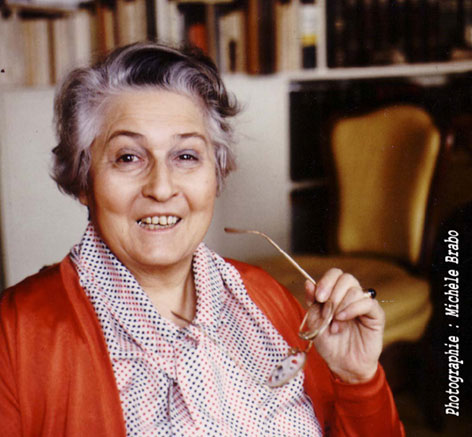Which child needs therapy?
When parents come to consult for a child, it can take some time to determine who is suffering, who wants help: the parents or the child. And sometimes when they consult for a child, it is not always for the child that is suffering most.
This shows in this summary of a chapter from the book by Catherine Matelin: 'Lacanian psychotherapy with children: The broken Piano.'
The parents of Aurore and Christine came to see CM with their two daughters. Aurore was beautiful, tall, blonde, smiling a fairy-tale princess who resembled her name. She was 7 years old. Christine, age 5, was dark and quite small, she seemed shy and more retiring. When CM asked the parents which girl had the appointment they seemed amused: 'Christine, of course.'
CM asked the parents, once in the consulting room why they were so surprised, when she asked who had the appointment. The parents responded they thought she would have noticed right away: Aurore is self-assured, joyful. She feels good about herself. People are always worried about Christine. Christine is small, reserved. Yes, she has friends, does well in school, she likes to work. But she is very quite. Aurore is always talking, center stage. She seems overwhelmed by her older sister.
When CM talked to Christine, she seemed not to be suffering. She was talking perfectly well, expressing that she does not always likes to talk so much, and prefers to read her books. play the piano... The parents seemed to be on the lookout for symptoms, but CM could not see what their concern was. Christine did not seem to want help, and CM invited the parents to come back and talk as it seemed that they wanted help. Perhaps it was not Christine, but something else that was on their mind.
In the meantime in the waiting room Aurore had torn out a piece of paper from the notebook in her schoolbag and drawn a picture. When she saw CM come in she rushed over to CM and gave her the drawing. Something in the urgency of the little girl made her feel that she had to listen to her. It was the sort of picture all 7-year-old girls draw: flowers, a sun, a beautiful princess with a carefully decorated gown full of sparkling jewels, gray clouds, a blue sky.
Among the sprinkling of flowers were a few small red mushrooms that attracted CM's attention, and she asked her about them:
CM: Oh, that kind of odd, so many mushrooms...
Aurore: Yes, the are poisonous, you know, deadly mushrooms.
And the gray clouds up there?
Aurore (smiling): Yes, those are toxic fumes that kill people when it rains.
CM: And these hills on which you planted the flowers?
Aurore: (still smiling) These are the lairs of the living dead. They come at night to cut people's throats and suck their blood; sometimes they smother them.
CM: And the princess? Is she in danger?
Aurore: The princess is the one who orders the other ones to kill. So she is afraid that they will come and take revenge.
The parents looked stunned: 'Aurore, how can a nice girl like you say such horrible things?'
CM noticed that Aurore had written on the other side of the paper S.O.S.
The parents were correct in feeling that they needed a consultation, only they didn't know for whom they had come. It is often found that a family's demand on behalf of one child actually concerns another. The guilt that was devouring A and her parents could be spoken of only through their 'victim,' who was bearing up quite well. It is not always the preferred child in a family who is in the better position.

